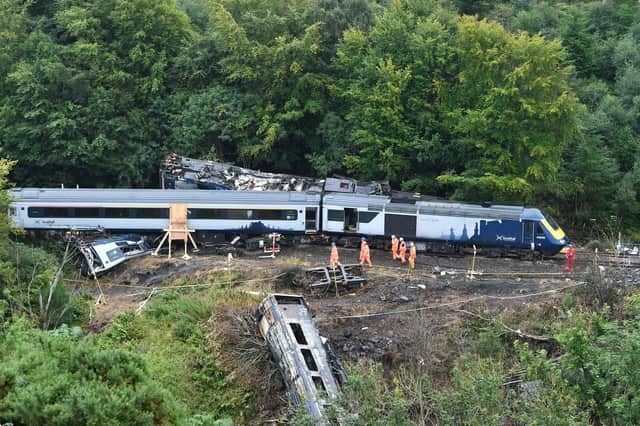Scotland's transport system should not have to rely on museum-piece trains and roads built for a bygone age – Scotsman comment


And it should be, for the Sir Kenneth Grange, named after its designer, was built in 1975, making it as old as the museum itself. “As well as being the first InterCity 125 produced, Sir Kenneth Grange was the last 125 to operate a passenger service before this type of locomotive was retired from the railways,” its website says.
However, InterCity 125s were brought back out of retirement to resume service in Scotland and it was one of these museum pieces that derailed near Stonehaven in 2020, with the deaths of three people.
Advertisement
Hide AdAdvertisement
Hide AdNow Scottish Labour leader Anas Sarwar has joined calls from drivers, among others, for the trains to be scrapped by ScotRail, after accident investigators concluded it was “more likely than not that the outcome [of the Stonehaven crash] would have been better if the train had been compliant with modern crashworthiness standards”.
Sarwar told MSPs that “we should not have allowed unsafe trains or trains that did not meet standards to be on our railways”.
While it is important to note that the accident investigators said they did not think the trains were unsafe, their report did make seven recommendations for safety improvements.
Transport minister Jenny Gilruth has promised to look at when “some of these trains” can be removed, although she added “we are to some extent quite reliant” on InterCity 125s. The fleet of 25 trains currently operates on the ScotRail routes between Edinburgh/Glasgow and Aberdeen/Inverness, both key arteries of Scotland’s transport system.
The Scottish Government is also facing calls to modernise another two such arteries, the A75 and A77, from Irish Sea ferry operators, who recently pointed out there is “a casualty every three days” on the roads, which are “two of the five slowest A-roads in Scotland” despite their importance to transport links to Northern Ireland.
Planned improvements over the next 20 years, the ferry companies said, were only a “small fraction of what is required to make them safer, greener and better”.
We should be outraged at such tolerance for mediocrity – roads built for a bygone age and ageing diesel trains. If not, then Scotland may find itself forced to put up with an increasingly second-class transport system, with all that entails.
A message from the Editor:
Thank you for reading this article. We're more reliant on your support than ever as the shift in consumer habits brought about by coronavirus impacts our advertisers.
If you haven't already, please consider supporting our trusted, fact-checked journalism by taking out a digital subscription.
Comments
Want to join the conversation? Please or to comment on this article.
